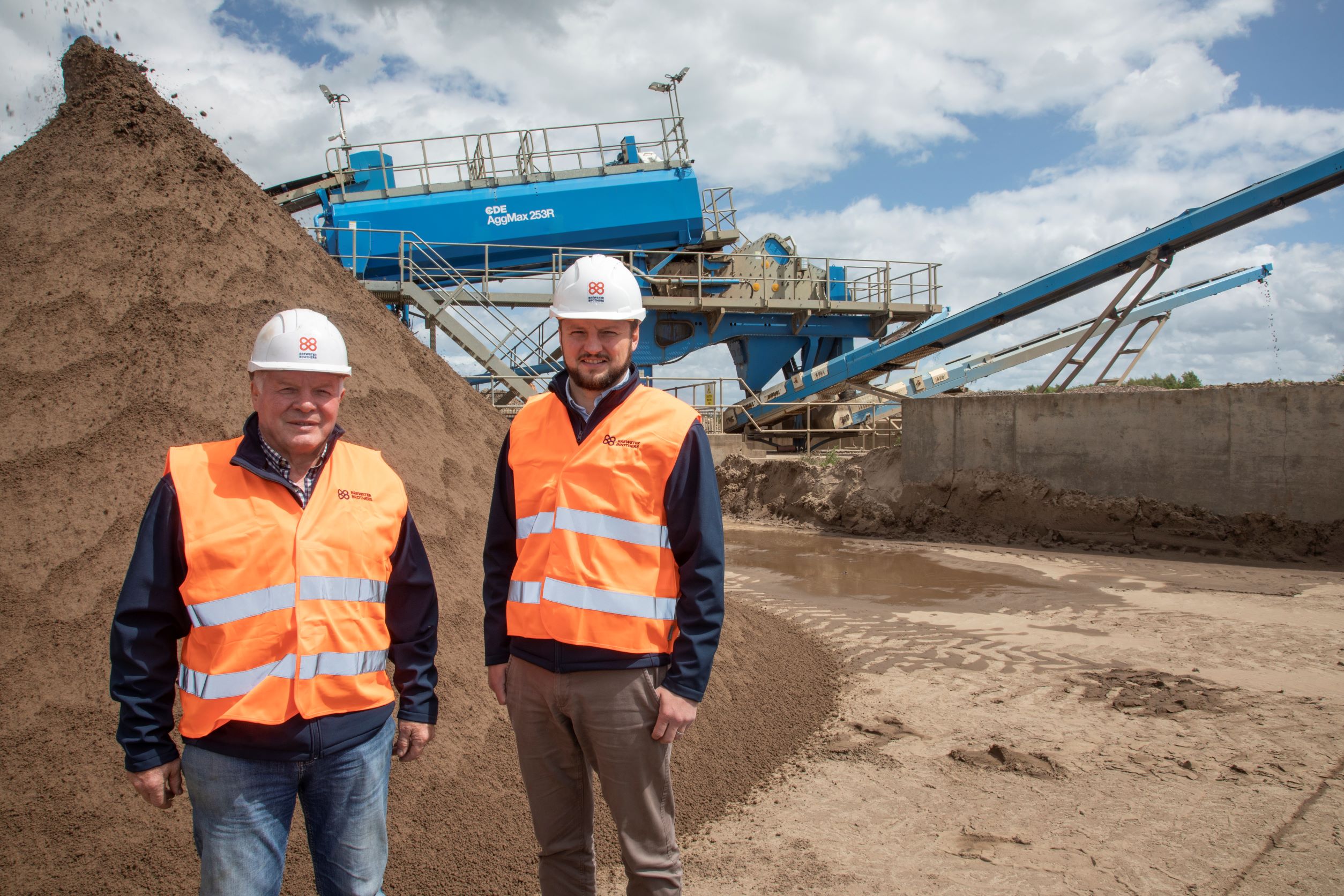
LIVINGSTON-based Brewster Brothers is taking part in a £6.5 million R&D project to produce zero-emission cement.
The project is being led by the Materials Processing Institute. Brewster Brothers is part of a cross-industry collaboration also comprising the University of Cambridge, Tarmac, Atkins, Celsa Manufacturing UK, and Balfour Beatty, helping to develop Cement 2 Zero from a process that uses cement paste to fire the electric arc furnace (EAF) that produces recycled steel and clinker for making new cement.
Over the next two years, the project will investigate the technical and commercial aspects required to successfully commercialise the process, bolster green steelmaking and produce a zero-emission cement at scale.
Brewster Brothers is helping the construction industry to introduce circular business models. Over the past four years, the firm has diverted almost one million tonnes of construction, demolition and excavation waste from landfill and created 750,000 tonnes of recycled aggregates with a carbon saving of 20,000 tonnes.
MD Scott Brewster said, “The recycling and reuse of construction waste have a major role to play in the drive towards net zero and this is an innovative R&D project that has the potential to create huge carbon savings in the future. It is a fine example of cross-industry circularity where waste from the construction sector is upcycled in the manufacture of steel and cement leading to zero-emission construction.
“Much more of this is required to establish a circular economy model for the building industry and we are delighted to be involved. It is a fantastic opportunity for an SME like ours to collaborate and bring our expertise to a group that includes big enterprises and leading academics.
“The nature of the collaboration – with businesses of all sizes across the supply chain – will ensure that the process can work for everyone commercially while having a profound impact on carbon emissions.”
The government-funded project was awarded through UK Research and Innovation (UKRI) as part of its Transforming Foundation Industries challenge.
Chris McDonald, chief executive of the Materials Processing Institute, commented, “We are delighted to be leading a project that has the potential to make a major contribution to achieving a zero-carbon society, secure and increase jobs in the UK cement and steel sectors and challenge conventional production processes, creating high-value materials from demolition waste.”








